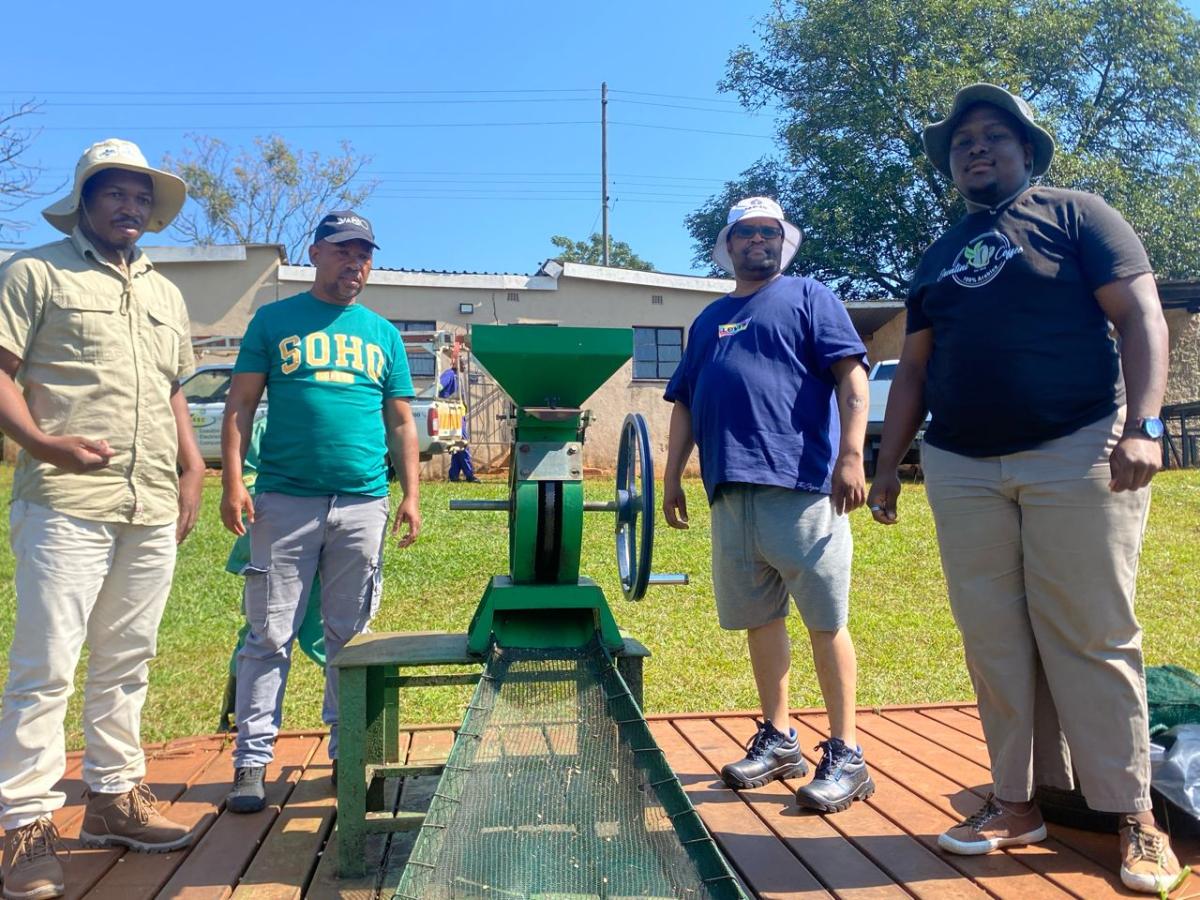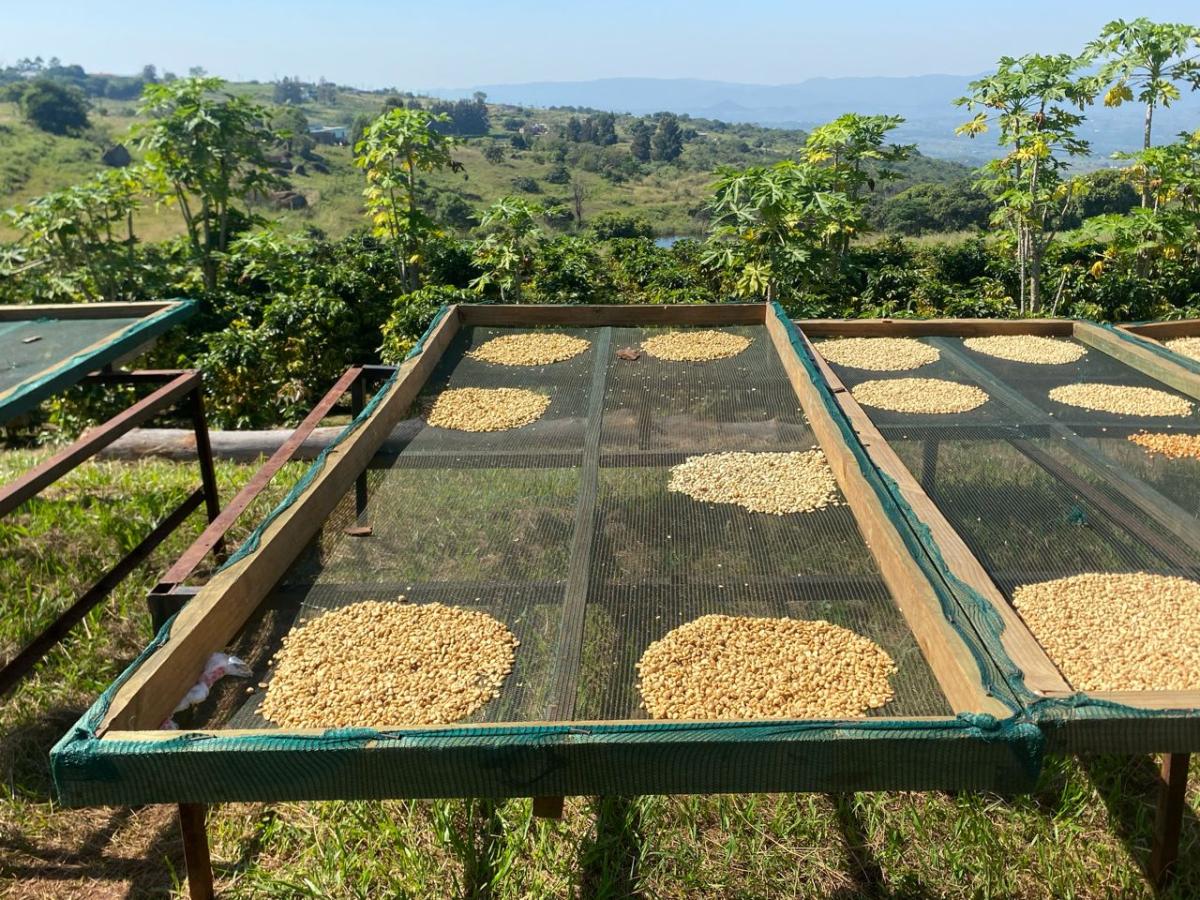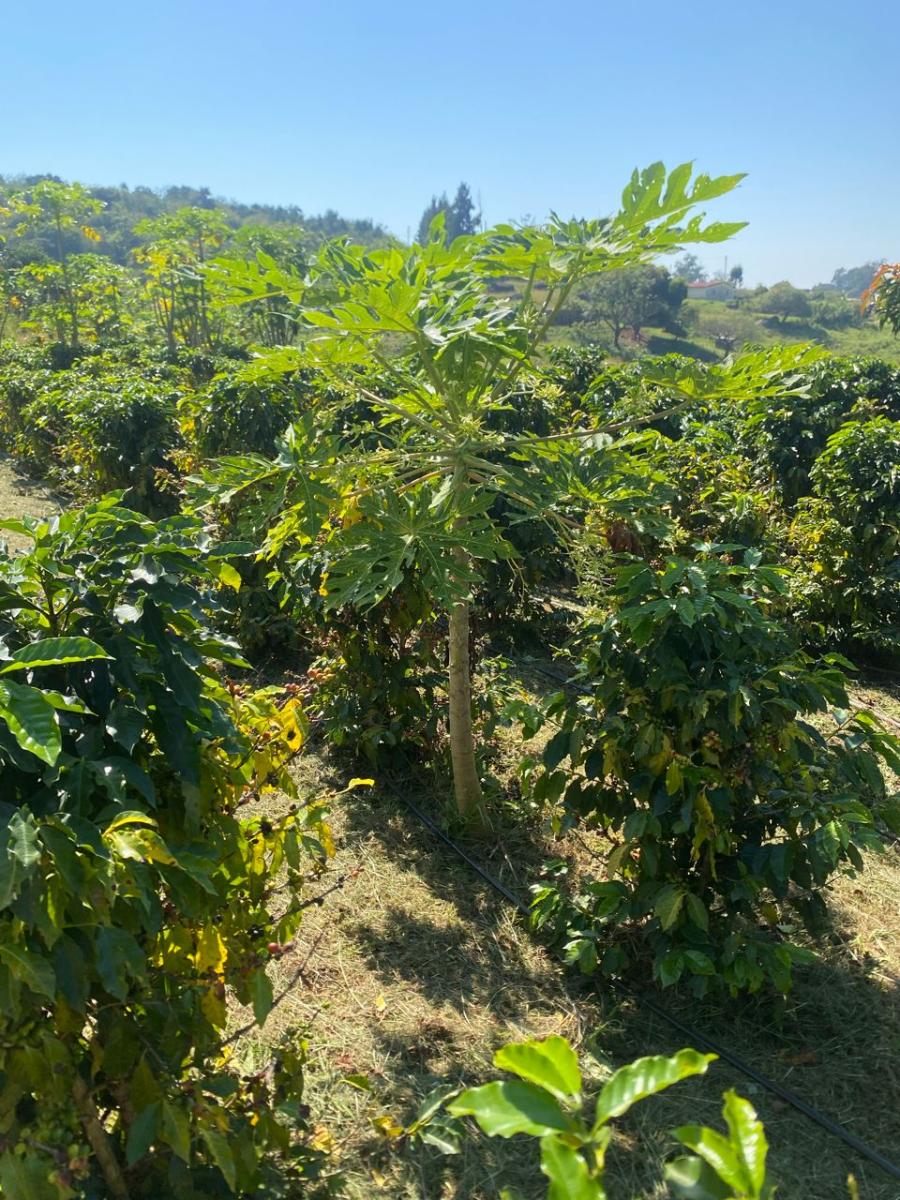
By Patrick Dupont
In the heart of Eswatini, a landlocked kingdom known for its rich traditions and vibrant culture, an extraordinary agricultural revolution is taking root. This revolution is not just a story of seeds and soil, but a tale of one man's unwavering belief in the potential of his homeland. This man is Patrick Dupont, a Liswati who, in 2017, armed only with his personal savings and a relentless belief, embarked on a pioneering journey to transform the lush terrains of the eLwandle chiefdom. Under the modest expanse of 4.5 hectares, the seeds of the Eswatini Coffee Association (ECA) were sown, originally named the Eswatini Coffee Company Pty Ltd.

Mr Dupont in the middle in a green Tshirt
This non-profit organization, the umbrella for all smallholder coffee farmers in rural Eswatini, was more than just an agricultural endeavor—it was a hub of hope and innovation. Dupont envisioned a nation of forward-thinking farmers, resilient and adaptive, thriving in the art of coffee cultivation while embracing the challenges of climate change.
The ECA's vision was to see the Nation with highly innovative farmers, who are sustainable in the coffee production, processing and cognizant of the impact of climate change. was clear: to transform the nation through sustainable coffee production, processing, and global trade. This ambitious goal led to the strategic empowerment of local farmers, encouraging them to cultivate their idle land not just with coffee but within an integrated agroforestry system. This system uniquely combined coffee with banana, avocado, papaya, and mango trees, enriching the soil and enhancing carbon sequestration to combat climate change.

Moreover, integrating apiculture and fishery enterprises provided critical ecosystem services, such as pollination, which significantly boosted the productivity of the agroforestry plots. This holistic approach preserved the environmental sanctity and propelled the community's economic stability.
The transformation did not go unnoticed. By 2021, the European Union, through the International Trade Centre (ITC), recognized the potential of this initiative. A memorandum of understanding was forged between ITC and ECA, focusing on capacity building to enhance nursery management and skills development among the farmers. This partnership further expanded ECA's reach and impact, connecting them with the University of Eswatini's Luyengo campus, which specializes in Agricultural Sciences.

To date, the ECA has engaged and upskilled 136 smallholder farmers, who are now at the forefront of a movement reshaping the agricultural landscape of Eswatini. The farmers are not just growing coffee but part of a larger narrative of resilience, innovation, and sustainability. The initiative now focuses on commercializing these efforts, scaling up through value chain development to ensure that these farmers are not just participants but leaders in the global coffee market.

Patrick Dupont's dream of a sustainable, innovative Eswatini is coming to fruition, illustrating the power of vision, community, and sustainable practices in transforming a nation. The tale of the Eswatini Coffee Association is more than a success story—it's an inspiring story of the spirit of human perseverance and the boundless potential of collaborative endeavor.
The author is a pioneer of the Eswatini Coffee Association (ECA)





